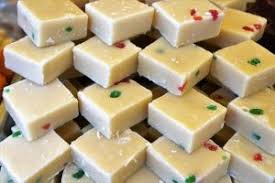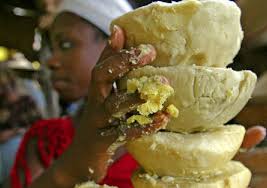How to Start Shea Butter Production in Nigeria
Shea butter is fat that’s extracted from the nuts of the shea tree. It’s solid at warm temperatures and has an off-white or ivory color. Shea trees are native to West Africa, and most shea butter also comes from West African countries. Shea butter has been used as a cosmetic ingredient for centuries. Its high concentration of vitamins and fatty acids — combined with its easy-to-spread consistency — make it a great product for smoothing, soothing, and conditioning your skin. Shea butter melts at body temperature. Proponents of its use for skincare maintain that it absorbs rapidly into the skin, acts as a “refatting” agent, and has good water-binding properties. Within Nigeria, there are some of the largest concentrations of shea trees in the world as the plants are native to the country, making it the biggest shea nut producer at 263,000 MT in 2018. West African shea butter, including Nigerian shea butter, is also known especially for its high concentration of vitamin A. Most of the shea nuts in Nigeria are exported, with only about 20% of the products consumed domestically.
 How to Start Shea Butter Production in Nigeria
How to Start Shea Butter Production in Nigeria
Shea butter, including its factions and derivatives, can be used in a wide range of products due to its versatility as an ingredient and its functional properties. The growing demand for natural and organic cosmetics is leading companies to invest in more efficient yet quality-natural ingredients. Cosmetic ingredient suppliers are looking at new market opportunities for shea butter and its derivatives. In the next few paragraphs, let us look at some of the predominant uses of shea butter that may be responsible for its high market value and demand.
Various uses and benefits of shea butter
- For making cosmetics products
While shea butter is mainly used in the cosmetics industry for skin- and hair-related products (lip gloss, lipstick, skin moisturizer creams and emulsions, and hair conditioners for dry and brittle hair),
Shea butter is also used by soap makers and massage oil manufacturers. It is an excellent emollient for dry skin. No evidence shows it is a cure, but it alleviates the pain associated with tightness and itching.
- It is used for cooking purposes
Shea butter is used worldwide for its various uses in the food industry. In some African countries, shea butter is used for cooking oil. Processed shea butter is used by the end buyers as shortening in cooking as well. Compared to the cosmetics industry, however, processed shea butter is more prevalently used in the food industry, taking up 90% of total production.
- Used in the manufacturing of wax
Shea butter can be used as a waterproofing wax, for candle-making, and as an ingredient in medicinal ointments. It is used by makers of traditional African percussion instruments to increase the durability of wood, dried calabash gourds, and leather tuning straps.
Shea butter is sometimes used as a base for medicinal ointments. Some of the isolated chemical constituents are reported to have antimicrobial, anti-inflammatory, emollient, and humectant properties. Shea butter has been used as a sun-blocking lotion and some of its components have limited capacity to absorb ultraviolet radiation. In Nigeria, shea butter is used for the management of sinusitis and relief of nasal congestion. It is massaged into joints and other parts of the body where pain occurs as it is well known for alleviating joint pains.
The processing of shea, in general, involves many activities that start soon after wild-harvesting advancing the process through refining to manufacturing. Next, we want to look at a simple guide on how to start shea butter production in Nigeria.
Read Also: How to Make Millions of Naira Plantain Farming in Nigeria
Collection of shea fruit
Shea butter is processed from the kernels found inside the fruit of the shea tree (Vitellaria paradoxa). Shea trees are native to the savannah region of Africa. It takes shea trees 20 to 30 years to begin to bear fruit, so the trees must be protected by local communities. The fruits ripen and fall from the tree at the beginning of the rainy season. Then, the kernels are separated from the fruit and ready to begin the shea butter production process.
 How to Start Shea Butter Production in Nigeria
How to Start Shea Butter Production in Nigeria
Curing the shea fruit
The processing of shea starts with curing, begun soon after the harvesting of ripened, wild fruits, a task performed predominantly by rural women. This manual process involves the following: de-pulping the fruit, boiling it, sun-drying the nuts, cracking the shells to remove the kernel, sun-drying the kernels again, and finally storing the kernels until they are sold or further processed. The process stabilizes the nuts for more than a year, if they are stored in a dry, aerated room
Extraction of shea oil/butter
The semi-mechanized system of extraction utilizes appropriate technology and operations a bit more advanced than the manual, traditional system. A nut crusher, a kneader, or a hydraulic/screw press oftentimes complements the manual process and reduces the drudgery of the traditional system. This semi-industrial method achieves extraction rates of 35-40%. Mechanized processing in West Africa yields 30-40% of shea butter from raw nuts. More efficient, fully mechanized systems achieve extraction rates of between 42% and 50%.
Extraction simply talks about the process of removing oil/butter from the shea seed, which may involve a totally manual system or be partly mechanized, through the use of diesel- or electrically-powered attrition mills, crushers, and kneaders. The continued production of butter from dried shea nuts using manual traditional techniques proves tedious, labor-intensive, and inefficient. This demands large quantities of water and wood fuel and creates a significant drain on scarce resources in the semi-arid areas where shea grows. The processing input of 18.5 kg of raw shea nuts requires 48 kg of wood and 67 liters of water. Currently, semi-industrialized processes develop alongside traditional methods where 80% of the butter is made traditionally. The manual process used by rural women has continued for generations. In the labor-intensive method, women pound the kernel with pestle and mortar to break the seed into grits, roast the kernel to facilitate easy extraction of the butter or fat, and grind the grits into a paste. The women continue the process by kneading the paste in water to capture the fat into an emulsion, boiling the mixture to separate the fat, and skimming off the fat. The final cooling process leads to shea butter.
Refine the shea butter
This is an advanced but optional part of the production process. This is because many producers actually sell the shea butter unrefined. The unrefined shea butter has its many uses and is actually preferred in some instances by end-users, depending on the purpose for which it is required. There are two options when it comes to this stage in the processing of the shea butter. The first option is to have as your final product the crude shea butter which was gotten from the last step described above. Another option is to take the refining process further one step, where a better-refined version of shea butter is produced. This refined shea butter is whiter as opposed to the yellowish color of the crude one, and it is more attractive and odorless. In any case, there are ready buyers for any of the options, should you decide to stop at the crude butter or proceed to the better-refined version. While there are international buyers who directly import the nuts from Nigeria, there are also importers who prefer the crude butter, and there are others who will purchase the refined type which has a significantly higher value.
Hope you enjoy this article?
Share your thoughts in the comment session.
Contact us today for your business consultancy and business advisory services. We can help you fine-tune your idea, structure your business, market your business, train your staff, consult on your retirement plan, coach you for financial success. We also write a business plan and help with fundraising strategies and Grant applications. We can help you start, grow, and expand your business.
We help institutions and organizations write concepts, implement Business plans, and train on business Plan writing in Nigeria.
We can help you write a detailed, bankable and comprehensive business plan for your business idea.
Call any of our business plan consultants on 08105636015, 08076359735, and 08113205312.
Or send a WhatsApp message or email us either at dayohub@gmail.com or info@dayoadetiloye.com.
Related